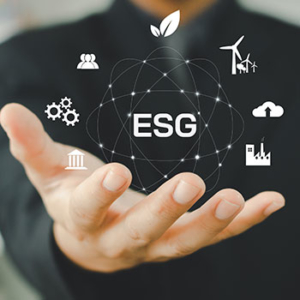 Several years ago, I talked about Environmental, Social, and Governance investing (ESG). With some hindsight, we can now have a look at how this trend is or is not working.
Several years ago, I talked about Environmental, Social, and Governance investing (ESG). With some hindsight, we can now have a look at how this trend is or is not working.
Did you know your portfolio can be invested in companies that seek to be environmentally aware, socially responsible, and operate within a framework of rules and practices to ensure accountability, fairness, and transparency (governance)?
When I wrote about this in 2019, There was really not a great deal of clarity or guidelines as just what might make a company qualify as an ESG investment. As was the case in 2019, the SEC (Security & Exchange Commission) does not have a mandatory requirement that companies provide ESG information. Determination of what criteria needs to be reviewed remains unclear.
According to an article in the Harvard Business Review from March 2022 written by Sanjai Bhagat, as of December 2021, assets under management at global exchange-traded ESG funds amounted to more than $2.7 trillion. Only about 13% of these are U.S. based, and 81% are European based.
The big question for investors is, of course, how have the funds performed?
According to Bhagat, not well. He writes, “To begin with, ESG funds certainly performed poorly in financial terms. In a recent Journal of Finance paper, University of Chicago researchers analyzed the Morningstar sustainability ratings of more than 20,000 mutual funds representing over $8 trillion of investor savings. Although the highest rated funds in terms of sustainability certainly attracted more capital than the lowest rated funds, none of the high sustainability funds outperformed any of the lowest rated funds.”
 So is the return or lack thereof worth it to know you are investing in ESG companies?
So is the return or lack thereof worth it to know you are investing in ESG companies?
Perhaps. That is up to the investor to decide. Another question is, are the companies I’m investing in really maintaining Socially responsible practices? The answer is a resounding Maybe. A Columbia Business School article, “Purpose or Posturing: Do the Socially Responsible Walk the Talk?” addresses this issue.
… “The so-called ‘social responsibility’ shift of companies from focusing on shareholder’s pockets to stakeholder value is a high-minded ideal,” said Professor Rajgopal. “But our research shows that the companies using their dollars to make purchases into ESG mutual funds do not actually practice the ethics they’re claiming to value.”….. “Our findings are sobering, and they serve as a way for investors, especially asset managers, to hold managers’ feet to the fire with respect to potential cheap talk about corporate purpose,” said Professor Rajgopal. “It also shows that the BRT signatories have historically not walked the talk, and they need to put their money where their mouth is with respect to ESG issues.”
 With so much confusion about what defines a socially responsible investment and with no real official guideline, how can you determine how to be a “socially responsible” investor?
With so much confusion about what defines a socially responsible investment and with no real official guideline, how can you determine how to be a “socially responsible” investor?
The answer is to set your own guidelines on this matter. In reality, any bureaucratic policies will be less important and no more objective than your own. Look at the holdings of any ESG fund, and you’re likely to think, “how did they make the list?” of at least one of the holdings. Not all funds list the entire portfolio either. You often see just the top ten.
The best way to prevent investing in a company you want to avoid is by using a separately managed account that allows you to place restrictions on certain types of holdings. For example, you can state at the outset that you want to avoid tobacco, marijuana, etc. Even this may be less than perfect as companies may merge with or acquire a company that has exposure to these products. Even if this happens, the portfolio can be adjusted based on your preference.
For more information on this, feel free to call me.
September 2022
Socially Responsible Investing (SRI) / Environmental Social Governance (ESG) investing has certain risks based on the fact that the criteria excludes securities of certain issuers for non- financial reasons and, therefore, investors may forgo some market opportunities and the universe of investments available will be smaller.
